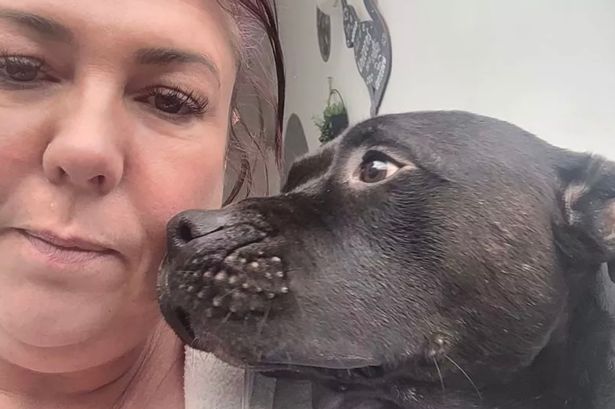Stephanie Fletcher, a 45-year-old woman, experienced a deeply distressing situation involving a Staffordshire Bull Terrier she had welcomed into her home. Her intention was to provide care and shelter for the dog, but the situation took a tragic turn when she brought the animal to a veterinarian. The vet, citing concerns for public safety, made the difficult decision to euthanize the dog. This unexpected and heartbreaking outcome left Ms. Fletcher devastated, grappling with the emotional fallout of losing an animal she had intended to protect. The specific circumstances surrounding the vet’s assessment remain unclear, but the emphasis on public safety suggests the dog exhibited behaviors or presented risks deemed unmanageable.
The incident raises complex questions about responsible dog ownership, the challenges of assessing canine behavior, and the difficult decisions faced by veterinarians tasked with balancing animal welfare with public safety. Determining a dog’s dangerousness involves considering multiple factors, including breed, history, behavior, and environment. While Staffordshire Bull Terriers are sometimes associated with aggressive tendencies, it’s crucial to remember that individual dogs within any breed can display a wide range of temperaments. A thorough assessment requires expert evaluation, and responsible ownership includes being aware of and addressing any behavioral issues that could pose a risk to others.
For Ms. Fletcher, the sudden loss of the dog represents a profound personal tragedy. The emotional bond formed with a pet can be incredibly strong, and the decision to euthanize an animal, especially one intended for rescue, can be deeply traumatic. The sense of helplessness and grief associated with such a loss can be overwhelming, compounded by the unexpected nature of the event and the lack of control over the outcome. The situation underscores the emotional investment involved in pet ownership and the devastating consequences when unforeseen circumstances lead to such a heartbreaking conclusion.
The veterinarian’s decision, while undoubtedly difficult, highlights the professional responsibility they bear in protecting public safety. Veterinarians are ethically obligated to consider the potential risks posed by animals under their care and to take appropriate action when necessary. This can involve recommending behavioral modification, implementing safety measures, or, in extreme cases, euthanasia. While public safety is paramount, such decisions are never taken lightly and are often made after careful consideration of all available options. The vet likely conducted a thorough evaluation of the dog’s behavior, considering factors like aggression, predictability, and potential for rehabilitation, before arriving at the difficult decision to euthanize.
The incident serves as a stark reminder of the importance of responsible pet ownership, which encompasses not только providing basic needs like food and shelter but also addressing behavioral issues and ensuring the animal does not pose a threat to others. This requires vigilance, proactive training, and a willingness to seek professional help when necessary. Early intervention is key in addressing behavioral problems, and responsible owners should be attentive to any signs of aggression or other concerning behaviors. Furthermore, understanding breed-specific traits and potential challenges can help owners anticipate and manage certain behavioral tendencies.
In conclusion, the tragic events surrounding the euthanasia of the Staffordshire Bull Terrier taken in by Stephanie Fletcher illuminate the complex interplay of animal welfare, public safety, and the emotional bonds between humans and animals. The incident highlights the difficult choices faced by veterinarians in balancing these competing concerns and underscores the responsibility of pet owners to ensure their animals are not a danger to the community. While the specific details surrounding the dog’s behavior remain unknown, the case serves as a sobering reminder of the importance of responsible pet ownership, proactive training, and the devastating consequences that can arise when these responsibilities are not met. The emotional toll on Ms. Fletcher further emphasizes the profound impact pets have on our lives and the deep sense of loss experienced when these bonds are broken.














